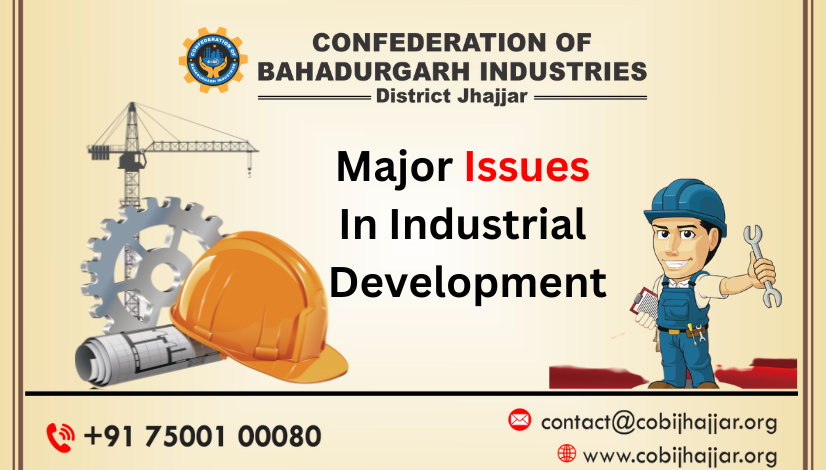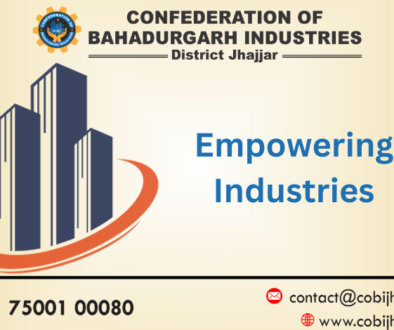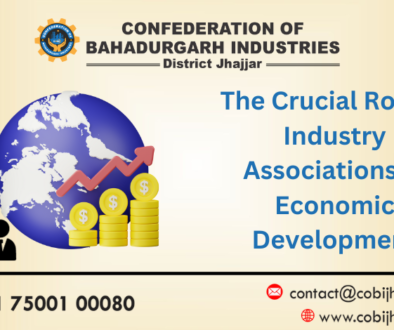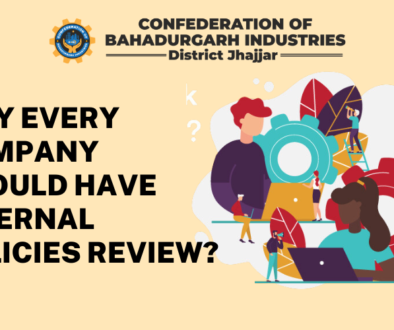Major Issues in Industrial Development
Navigating the Challenges of Industrial Development: Key Issues and Solutions
Industrial development plays a vital role in driving economic growth, creating job opportunities, and fostering innovation. However, the path to industrial success is not without its challenges. From regulatory hurdles to technological advancements, various issues can hinder the smooth progression of industrial sectors. In this blog post, we will explore the major issues that often arise in industrial development and discuss potential solutions to overcome them, including how COBI is helping industries overcome these challenges.
There are many challenges that come along with this, most of them are:
- Regulatory Complexities and Compliance Burdens: One of the most significant challenges facing industrial development is navigating through a complex web of regulations and compliance requirements. Adhering to environmental, labor, and safety regulations can be time-consuming and costly for businesses, particularly small and medium-sized enterprises (SMEs). To address this issue, policymakers should strive for streamlined and transparent regulatory frameworks, ensuring that regulations are clear, accessible, and supportive of sustainable industrial growth.
- Access to Finance and Infrastructure: Another common obstacle to industrial development is limited access to finance and inadequate infrastructure. Securing capital for new ventures, expansion projects, or technological upgrades can be a daunting task, especially for startups or businesses in remote areas. Governments and financial institutions must create favorable lending conditions, such as offering low-interest loans or grants specifically tailored to the needs of industrial enterprises. Furthermore, investing in infrastructure development, including transportation networks, power supply, and connectivity, is crucial for enhancing competitiveness and attracting investments to industrial regions.
- Workforce Development and Skills Gap: The availability of a skilled and qualified workforce is essential for industrial success. However, a persistent challenge faced by industries is the existence of a skills gap, where the demand for specialized skills outweighs the available supply. To address this issue, collaboration between educational institutions, industry associations, and government bodies is paramount. Investing in vocational training programs, apprenticeships, and continuous learning initiatives can bridge the skills gap, ensuring that the workforce remains competent and adaptable to changing industry requirements.
- Technological Advancements and Industry: The rapid pace of technological advancements presents a challenge for industries to keep up. Businesses must adapt to digital transformation, automation, and data-driven processes to remain relevant. Encouraging research and development collaborations, providing financial incentives for technological adoption, and fostering innovation hubs can support industries in embracing new technologies and staying ahead of the curve.
- Sustainable Development: Industrial development must go hand in hand with sustainable practices and environmental responsibility. Industries have a significant impact on natural resources, pollution levels, and climate change. To address this challenge, businesses should adopt eco-friendly practices, invest in clean technologies, and implement efficient waste management systems. Governments can provide incentives for sustainable practices, enforce stricter environmental regulations, and promote circular economy principles.
While industrial development presents numerous challenges, proactive measures can pave the way to success, now here are some ways how COBI is helping industries in overcoming challenges. COBI (Confederation of Bahadurgarh Industries) actively contributes to overcoming the challenges faced by industries in the Jhajjar District of Haryana. Through its various initiatives and interventions, COBI plays a crucial role in supporting industrial development and helping businesses navigate obstacles. COBI serves as a unified voice for industries in the district, advocating for their interests and concerns at various levels of government. By representing the collective needs of industries, COBI can influence policy decisions, regulatory reforms, and infrastructure development plans, other than that by organizing sessions, seminars, and workshops, COBI provides a platform for businesses to exchange ideas, best practices, and experiences. This fosters collaboration, helps overcome challenges related to workforce development and technological advancements, and encourages the adoption of innovative solutions also by developing a skilled workforce, embracing technology, and promoting sustainable practices COBI contributes to the growth and well-being of industries in the district, fostering a vibrant and prosperous industrial landscape.




